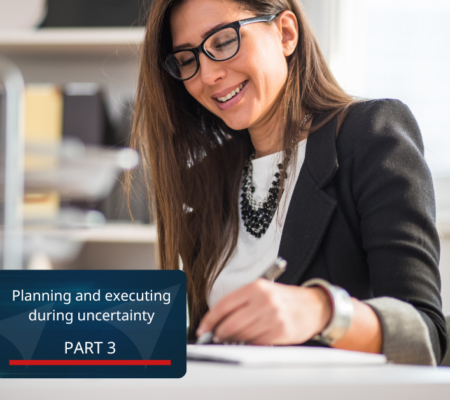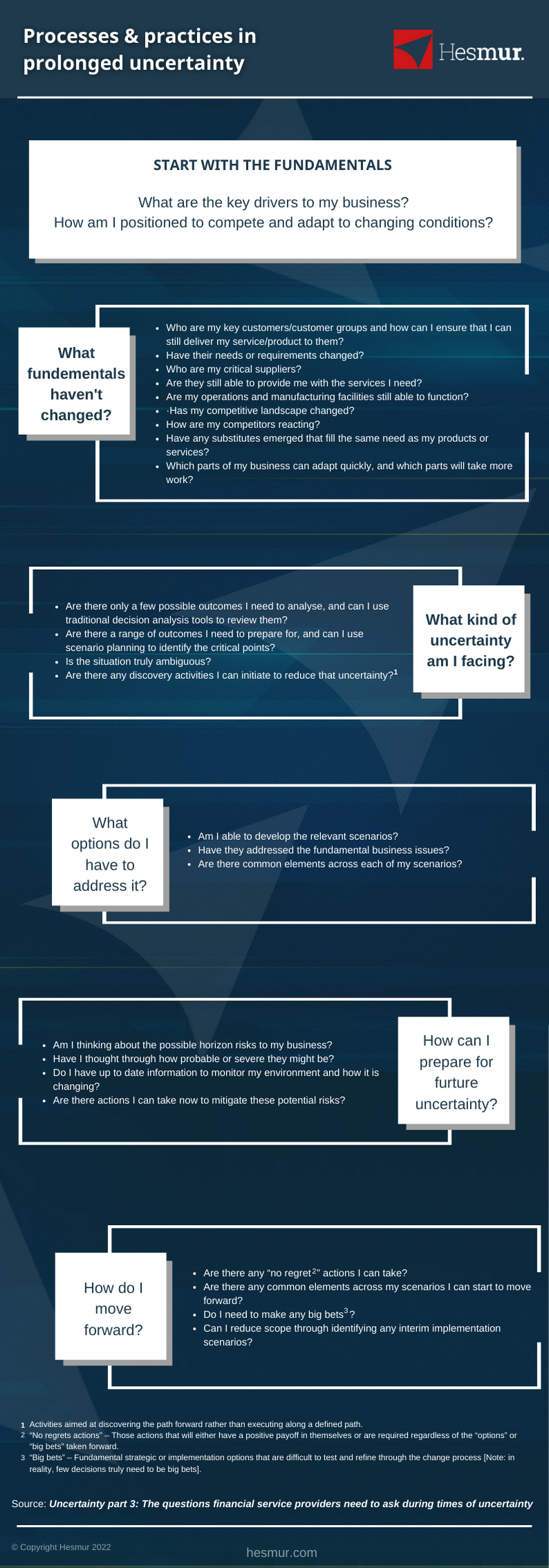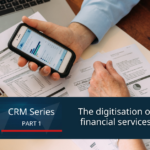Summary
The third and final part of the planning and executing in uncertainty series aims to help firms understand the uncertainty they face and uncover the options offered to them by asking a series of critical questions.
Part 1: Understanding uncertainty and the planning approaches available
Part 2: Delivering change in periods of uncertainty
What should firms do now?
As firms continue to navigate in periods of heightened uncertainty, using a methodical approach is helpful in focusing attention on the critical issues. And rather than jumping to the answers, firms must ask critical questions to define and understand the uncertainty they are facing and then uncover the options they have to navigate it.
Questions to ask during periods of uncertainty
We advise starting with the fundamentals and asking the following series of questions:
Start with the fundamentals
What are the key drivers to my business? How am I positioned to compete and adapt to changing conditions?
- Who are my key customers and how can I ensure that I can still service them or deliver my product to them?
- Have customer needs or requirements changed?
- Who are my critical suppliers?
- Are they still able to provide me with the services i need?
- Are my operations and manufacturing facilities still able to function?
- Has my competitive landscape changed?
- How are my competitors reacting to the change?
- Have any substitutes emerged that fill the same need as my products or services?
- Which parts of my business can adapt quickly, and which parts will take more work?
What can I ground myself on?
What fundamentals have not changed in my market?
- Do my customers still need my products and services?
- Are supplies still readily available?
- Can I still manufacture/deliver my product or service?
What kind of uncertainty am I facing?
- Are there only a few possible outcomes I need to analyse, and can I use traditional decision analysis tools to review them?
- Are there a range of outcomes I need to prepare for, and can I use scenario planning to identify the critical points?
- Is the situation truly ambiguous?
- Are there any discovery[1] activities I can initiate to reduce that uncertainty?
What options do I have to address these issues?
- Am I able to develop the relevant scenarios?
- Have they addressed the fundamental business issues?
- Are there common elements across each of my scenarios?
How can i prepare for future uncertainty?
- Am I thinking about the possible horizon risks to my business?
- Have I thought through how probable or severe they might be?
- Do I have up to date information to monitor my environment and how it is changing
- Are there actions I can take now to mitigate these potential risks?
How do i move forward?
- Are there any no regret[2] actions I can take?
- Are there any common elements across my scenarios I can start to move forward?
- Do I need to make any big bets[3]?
- Can I reduce scope through identifying any interim implementation scenarios?
Regardless of your sector, existing market dynamics, or actions to date, actively understanding and engaging with uncertainty as part of standard practice will build resilience and robustness into your operation and allow you to capitalize on opportunities as they appear.
If you’d like to hear more about these concepts or how to put them into action, please contact us at info@hesmur.com.
References
[1] Activities aimed at discovering the path forward rather than executing along a defined path.
[2] “No regrets actions” – Those actions that will either have a positive payoff in themselves or are required regardless of the “options” or “big bets” taken forward.
[3] “Big bets” – Fundamental strategic or implementation options that are difficult to test and refine through the change process [Note: in reality, few decisions truly need to be big bets].
Contact us
Call: +442045742661
email: info@hesmur.com

























